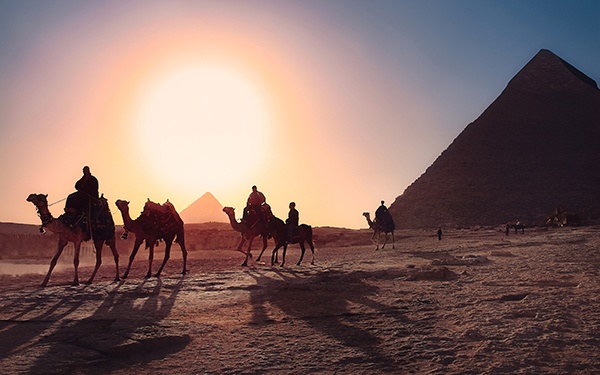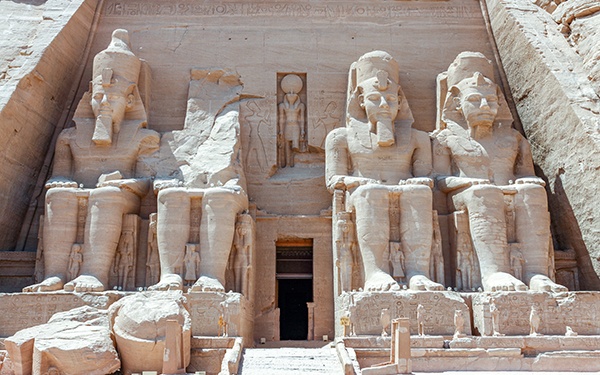Have you considered a move to Egypt from the UK?
A land of pyramids and ancient wonders, endless golden desert, the majestic Nile, red seas and breathtaking starry skies, Egypt is about as exotic and intriguing as it gets.
Aside from the wealth of incredible natural beauty, expats are lured here by the warm hospitality of the Egyptian people, fantastic work opportunities, and the rich and interesting culture.
Here’s our guide to moving to and living in this unique country…
Contents
Egypt Visa Requirements for Brits
Visiting
A tourist visa is required for all UK citizens entering into Egypt. This can be applied for either online at Visa2Egypt or on arrival at the immigration counter.
Tourist visas cost £20 for a single entry visa or £32 for a multiple entry visa. These visas are valid for up to 30 days but can be renewed. Please bear in mind that tourist visas do not entitle you to legally work whilst in Egypt.
A temporary residency tourist visa can also be applied for once your initial tourist visa has run out. This entitles you to a further stay of up to 6 months.
Working
If you wish to work whilst in Egypt, you will need to apply for a work permit. This can be done upon arrival. The process can be lengthy and take time, and you will need the assistance of your Egyptian employer to sponsor you and provide good evidence why you are being employed instead of an Egyptian national.
Once you have successfully obtained your work permit, it is valid for up to 1 year.
Permanent Residency
Expats intending to stay in Egypt long term apply for a temporary residence visa which is valid for one, three, or five years depending on the type you apply for.
You need to have entered the country on a valid tourist visa, then apply at the local police station or at an office of the Ministry of the Interior for the temporary residence visa.
Longer term residency visas are more likely to be granted to expats who already hold a valid work permit.
Marriage to Egyptian citizens also qualifies British Nationals for a resident visa.
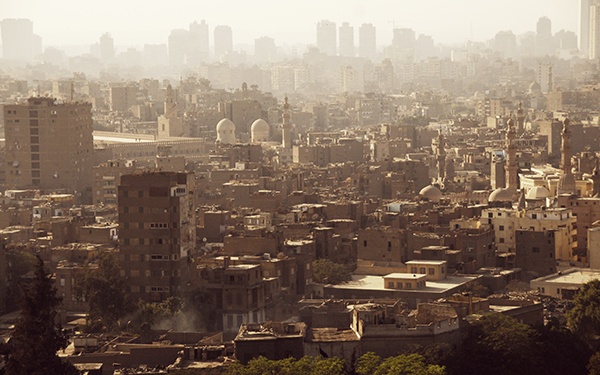
Way of Life in Egypt
Lifestyle
Family is at the heart of Egyptian life, and social activities often revolve around gatherings of family and friends.
Egypt is a Muslim country, and as such expats are required to respect cultural etiquette. Woman must dress modestly and cover legs, chest and stomach. In public places women are often segregated from men and signs of public affection should be avoided.
However, observe these rules well and you will gain respect and win over the kind and gentle Egyptian people, who once they accept you will treat you like family.
Alcohol is not widely available here with the exception of some high end restaurants and in the big cities such as Cairo where there are bars and clubs aplenty. Learn to love the local tea and coffee — both of which are served black and sweet — as drinking these beverages is something of a national pastime.
English is not widely spoken so you should ideally get a good basic grasp of Arabic if you want to integrate more easily.
Egyptian cuisine is also an important part of the culture. It is strongly influenced by Mediterranean cooking — particularly Turkey, Greece, and Syria — and specialities include hummus, fresh olives and almonds, felafel, stuffed peppers, Shawarma kebab, and slow roasted lamb.
On the less positive side, Egypt does have a history of political unrest, and terrorist attacks are not uncommon, particularly in in Northern Sinai. There is greater risk during local holidays, religious festivals, and where there are highly concentrated groups of people, and expats should avoid these situations in order to ensure they stay safe.
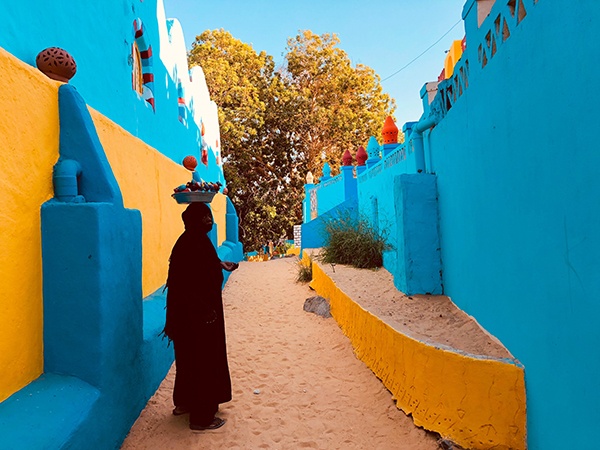
Getting Around
Public transport in Egypt is generally to a good standard. The train network covers routes connecting almost every major city, but many trains are a little run down so it’s worth paying extra to get a first class seat.
Probably the most popular way to travel long distances on land is by bus. Prices for tickets are very reasonable, and deluxe buses have air conditioning and sometimes on board toilet facilities. Standard buses tend to be crowded, stuffy and hot, and there are often delays.
A more comfortable alternative for shorter journeys of less than a couple of hours, is to hire a servee (service taxi) or microbus (minibus) which can be found at train and bus stations and cover many different routes — there are no set departure times, they just wait until they are full of customers before setting off.
Another way of travelling long distances is by plane. EgyptAir is the main carrier, and offers both morning and evening departures to all major Egyptian cities daily, including Cairo, Luxor, Sharm El Sheikh, and Aswan.
The options for urban travel include, buses, taxis, tuk tuks, minibuses, and trams, with Cairo also having a metro system. Taxis are efficient and fairly cheap, and tuk tuks operate in much the same manner and cost roughly the same as taxis, although they are sometimes a little cheaper. Be aware that taxi drivers often take advantage of foreigners and can become argumentative if they think you haven’t paid them enough.
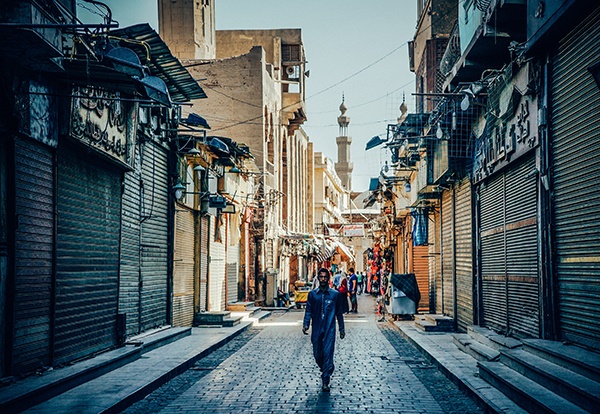
Driving in Egypt
If you’re considering driving in Egypt — hold onto your hat! Egyptians are well known for being bad drivers, and driving around cities such as Cairo can be utter chaos (and heavily congested).
Elsewhere road quality is questionable with plenty of pot holes, bumps, donkey carts and pedestrians to add to the challenge, although motorways are well maintained.
The general standard of other drivers is appalling, and can cause some nerve racking situations. It’s not recommended to drive at night as Egyptians drive without headlights, preferring to simply throw on their main beams if they see an approaching vehicle.
Minimum driving age in Egypt is 25, and expats require an international driving licence if they want to hit the road here. Speed limits are 90 km per hour on highways, and 60 km per hour in built up areas.
Vehicles drive on the right — or at least they are supposed to. If you’re planning on driving long distances between towns, be aware that outside of urban areas petrol stations are few and far between, so if in doubt bring a backup supply of fuel.
Well known international car hire companies can easily be found in major urbanised areas.

Weather in Egypt
There are only two seasons in Egypt — winter from November to April, and summer from May to October.
Inland in areas of desert, summer temperatures are extreme changing from a chilly 7° C at night to a scorching 43° C during the day.
Coastal regions tend to experience pleasantly hot summers with highs of around 37° C, but also the highest amount of rainfall with the wettest areas receiving about 200 millimetres of precipitation each winter — although Egypt is generally dry throughout the year.
April brings high levels of humidity and powerful desert sandstorms which can reach speeds of up to 140 kilometres per hour.
Cairo, Egypt’s capital, can become very humid in summer and receives nearly no rainfall, and August in the city is positively sweltering.
Cost of Living in Egypt
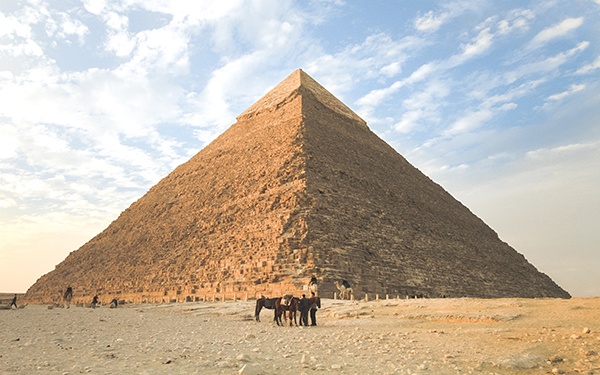
Lifestyle
Living costs are higher in Cairo and other cities compared to more rural areas, but prices are favourable in comparison to prices in the western world.
Food needn’t be expensive, and if you eat like a local it can be very cheap indeed, and fresh produce at markets is very affordable. Imported items however can be expensive, and it’s still possible to blow your budget if you choose to dine out at a high end restaurant.
Alcohol can also be expensive, although the local beer Stella (not to be confused with the well known brand available in the UK) is relatively affordable.
Public transport is on the whole reasonably priced, and if you decide to drive petrol is usually cheap, although it can experience occasional price spikes.
Utilities such as water and gas are inexpensive, but if you choose accommodation with air conditioning this can bump up your electricity bills.
Take a look at this video for a good idea of Egyptian expenses:
Rent
Accommodation prices are dependent on the area where you choose to live. Most expats choose to live in the cities where rental prices are higher, but it is still possible to get some good deals by choosing to rent away from the city centre.
Many expats opt to love in specially designated expat compounds where costs are very reasonable, but there is little in the way of entertainment and it’s common to feel isolated.
In Cairo, it’s possible to find very decent apartment accommodation from between £200 and £500 per month in nice areas that are popular among expats.
Healthcare
In recent years Egypt’s healthcare system has seen vast improvements, although there are still many areas where it is lacking, and the quality of medical care as a whole is still inferior to that in the UK.
There are both public and private medical facilities, but most expats opt for private healthcare plans which give them access to better doctors, equipment and standards of care, although many still choose to fly out of the country for major medical procedures, so this should be a taken into consideration when choosing health insurance.
Prices for private healthcare plans vary depending factors such as age, health, and occupation, but start as low at £500 per annum.
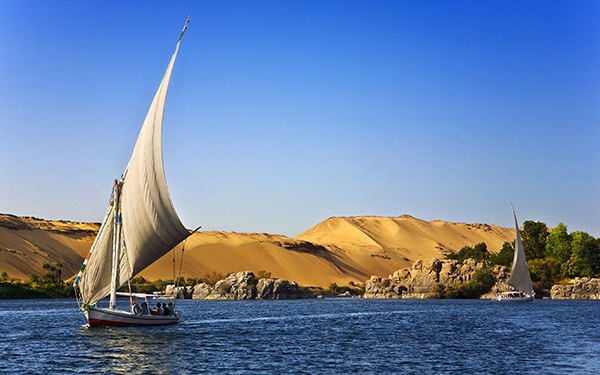
Schooling
Egyptian public schools are free, but pretty much all lessons are taught in Arabic, and Islamic studies form a large part of the curriculum.
As a result most expats choose to send their children to international schools which teach lessons in English, have highly qualified teaching staff, and follow a familiar curriculum on secure premises.
However, this standard of education comes at a price, and fees for international schools in Egypt have been rising steadily
Expect to pay well in excess of around £2000 per year per child plus admission fees of £1000 or more — even at first grade level — with prices rising at junior and secondary levels.
Popular Areas for Brits
Cairo
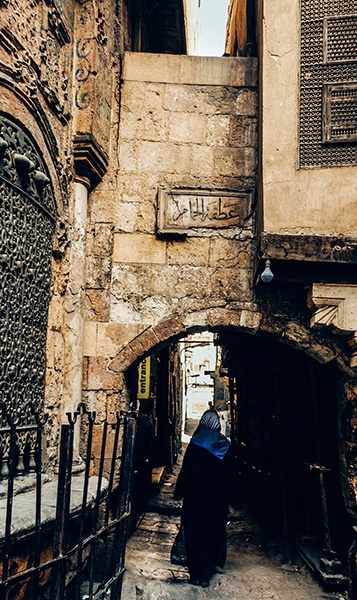
Big, brash, chaotic, crowded Cairo is an astounding city which is both beautiful and daunting in equal measure.
With the pyramids and infinite golden desert on its doorstep, Egypt’s capital city is drenched in culture and oozing with personality. Towering minarets rise above the smog filled streets, marking just one of the stark contrasts between ancient and modern.
Here you can wander medieval slums or eat out at world class restaurants; ride on a camel or live it up until the early hours in chic nightclubs.
Cairo is both exhilarating and exhausting, but absolutely unmissable.
Alexandria
Alexander the Great founded this grand city on the Mediterranean coast in 331 BC, and it was once brimming with wonders of the world and opulent palaces and temples.
Sadly all this was destroyed by a tsunami in the 365 AD, but the city was reborn and has since become a thriving metropolis and Egypt’s cultural capital.
Giza
On the west bank of the majestic Nile, Giza is a suburb of the capital city Cairo, and home to the famous pyramids and the Great Sphinx.
Understandably it’s an area popular with tourists, and makes an ideal base for touring the sites, cruising the Nile, or adventures in the desert such as camel riding and quad biking.
There are also numerous museums, large leafy parks, and bars and restaurants.
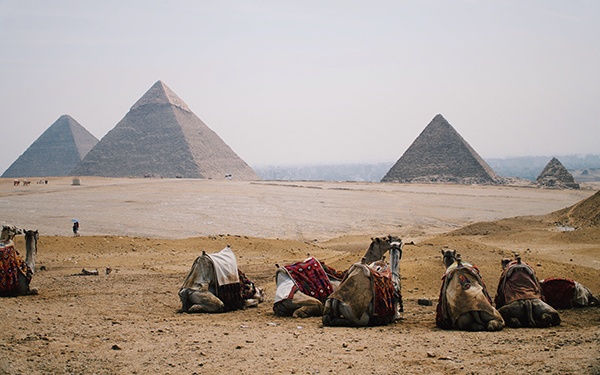
Luxor
Famous for its glorious outdoor museum of temples and tombs, this port town on the shores of the River Nile boasts atmospheric bazaars and souks, the incredible Luxor museum with an outstanding collection of statues and funerary items from the Theban Necropolis and temples, fabulous restaurants, locally produced arts and crafts, glitzy hotels, and much more.
Hurghada
On the glittering Red Sea coast, Hurghada is a popular seaside resort town close to archaeological sites plus all the fun of the beach.
It’s an ideal location for lovers of watersports, with excellent opportunities for snorkelling and diving, boat trips, windsurfing and parasailing.
There are boutiques and bazaars, mosques and churches, a stunning modern marina filled with numerous bars and restaurants, or just laze on the beach and soak up the sun.
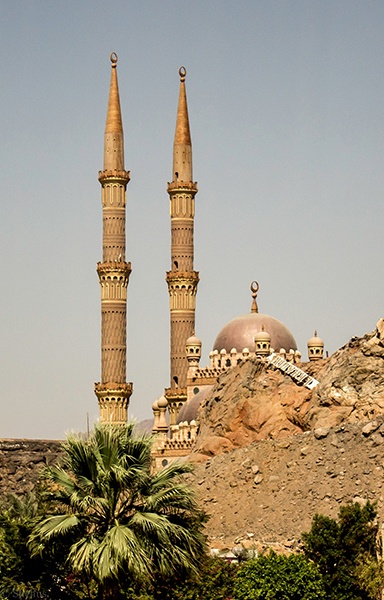
Sharm El-Sheik has undeniably some of the worlds most mind blowing underwater coral reef scenery, and is blessed with transparent waters which combine to create one of the most magical diving spots in existence.
This is a holiday resort town, with lots on offer for families and a huge choice of bars and restaurants. It’s a heavenly spot to relax and unwind and enjoy mother nature putting on a show.
Jobs in Egypt for British Expats
With numerous international businesses based there, Cairo is the hotspot for expat job opportunities.
That said, levels of unemployment in Egypt are relatively high, and Egyptian business owners are obliged to employ Egyptian nationals rather than foreigners whenever possible, so jobs for expats can still be tricky to come by.
The main Egyptian industries where expats are most likely to find employment include medicine, writing, translation and teaching, tourism, finance, banking, and investment, and manufacturing.
To boost your chances of finding employment in Egypt, learning Arabic is a must.
Whenever possible, seek an employer before you set foot on Egyptian soil to ensure that you’re not left high and dry.
Still considering moving to Egypt from the UK?

